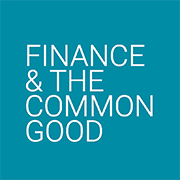With the working tables in the Finance and the Common Good program we bring relational finance in practice, with key-figures from the financial sector. Our discussions and deliberations at the working tables are “transformational dialogues”; preparing participants for concrete actions. Most of these working tables are theme-centered, discussing the same topic throughout the whole period of the program. On a few working tables, the theme-centered approach is with a fixed group of participants. Other working tables are with changing groups of participants.
1) My Financial Data
This is a working table on the creation of a commons-based (digital) platform for the protection of financial consumer data. In the age of “surveillance capitalism” (re. Shoshanna Zuboff) it is of great importance to think about privacy and data protection. In particular we focus on (the protection of) financial data. In the first phase of this project, we have gathered a group of academics, intellectuals and entrepreneurs to talk about existing and new platforms for data protection. In the second phase, a Community of Practice (CoP) was established; a group of stakeholders (start-ups, government officials, bankers, academics) that will provide the blueprint for a feasible (digital) application for consumer data protection. In the third phase, the CoP will deliver a “white paper” for a commons-based platform. The fourth phase will be the official launch of an independent, viable and trustworthy application.
Read more about the My Financial Data platform on the Sustainable Finance Lab website.
Contact person for the My Financial Data platform is Jim Surie. Reach out.
2) Circular Service (CISE) Platform
CISE is a decentralized digital administration system for circular service providers that supply a unit of service (e.g. clean laundry cycle). CISE works with a distributed ledger technology and is designed to provide a decentralized payment and financing method for circular services. A successful pilot was run with the company ‘Bundels’ (a “clean laundry provider”). In April 2019 a community of practice (CoP) was established, to develop and test the CISE platform. CISE also had a public kick-off in 2019 at the ABN AMRO CIRCL Building, with about 150 attendees.
Read more about the Circular Service Platform in this white paper.
Contact person for the Circular Service Platform is Rens van Tilburg. Reach out.
3) Debt Jubilee
In the Debt Jubilee program line, we investigate the possibility of a debt relief for individuals and for countries. The inspiration is the biblical concept of a debt jubilee, the idea of a Sabbath for debtors every 7 times 7 years, i.e. 49 years. The idea was practiced, as Michael Hudson pointed out in And Forgive Them Their Debts, in Mesopotamia in the 3d and 2d century BC. Nowadays, we see similar practices at local levels (like recently in the city of Arnhem where a group of debtors was relieved from their debt by the city government), at national level and international level with, for example, the Brady solution for Mexican debt. Low inflation and low interest rate policies could be seen as indirect ways to procure debt relief. We want to prepare a position paper on the Jubilee year in modern times based on contributions from a variety of scientific disciplines as well as practitioners. We seek contributions from theologians, economists, historians, anthropologists, legal scholars, and people active in actual debt policies.
Contact person for the Debt Jubilee platform is Rens van Tilburg. Reach out.
4) Long-term investing
This working table was established to bring together thought-leaders on the theme of “long-term investing”. The goal of the working table is to formulate opportunities for a direct, long-term oriented investments relation between investor and investee. This is especially relevant for large institutional investors, like pension funds. We will research threats (like possible regulatory barriers) and opportunities (“good” returns on investment) for this kind of investing for the financial sector.
Contact person for the Long-term Investing platform is Rens van Tilburg. Reach out.
5) Rhineland Reset
With the theme-centred working table on the “Rhineland Reset” we aim to address the development of thinking on the Rhineland model/paradigm. What was once called the “Rhineland model”, or “Rhineland capitalism” (aptly identified by (amongst others) Michel Albert in his classic work Capitalisme contre Capitalisme (1991)) is no longer evidently present in North-western European societies. Additionally, many deem Rhineland thinking to be outdated or have even forgotten what it once was.
As we meet the limits of our hyperglobalized, systemic mode of financial capitalism, time is due for research into alternative ways of thinking about economy, finance and society. We believe that the Rhineland paradigm is a valid discourse for a number of countries in (Western) Europe. With this working table, we want to promote the dialogue on this discourse, and test its legitimacy with different stakeholders in the financial sector.
Contact person for the Rhineland Reset platform is Kees Buitendijk. Reach out.
6) In development…
There are multiple working table efforts currently in development, on i.e. ‘Financing the Sustainable Development Goals (SDG’s)’, ‘The Future of Banking in Europe’ and ‘Capital and land-ownership’. We will report on these working tables here when they go public.

